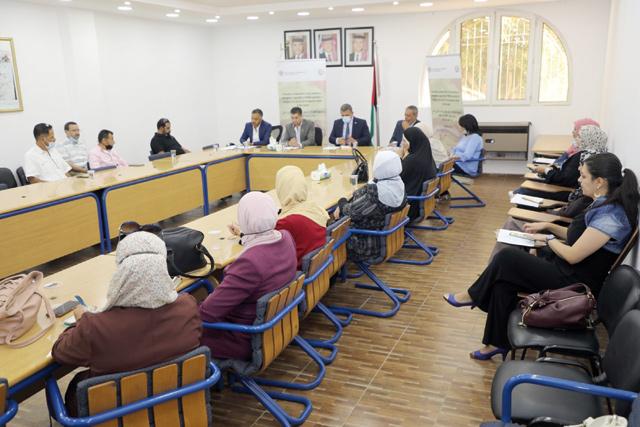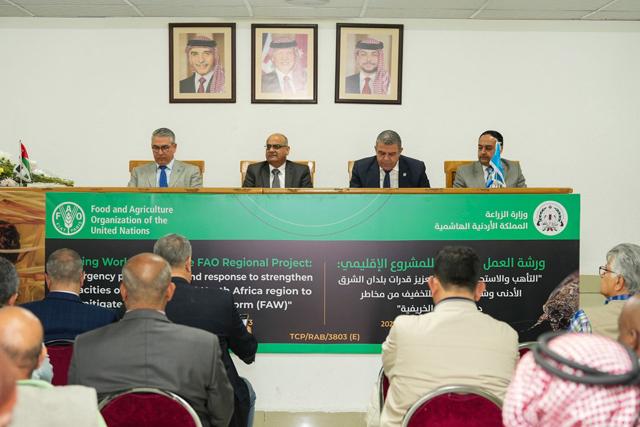You are here
FAO holds training to combat fall armyworm
By JT - Aug 29,2021 - Last updated at Aug 29,2021

The Food and Agriculture Organisation of the United Nations completed the first day of the Farmer Field School training on Integrated Pest Management for fall armyworm (Photo courtesy of FAO)
AMMAN — The Food and Agriculture Organisation (FAO) of the United Nations completed the first day of the Farmer Field School (FFS) training on Integrated Pest Management (IPM) for fall armyworm (FAW), according to a FAO statement sent to The Jordan Times.
This training falls within the regional activities of “Emergency preparedness and response to strengthen capacities of MENA countries to mitigate the risk of fall armyworm (FAW) in the region” project funded by FAO and implemented in cooperation with the Ministry of Agriculture in Jordan.
FAW is an invasive insect that feeds on more than 80 crop plants. Upon its introduction to Africa in 2016, the pest has caused devastating losses to many economic crops, particularly maize, the statement said.
Twenty-five agricultural engineers from the ministry are attending the FFS five-day training. The training develops an integrated curriculum for managing fall armyworm, to be used by farmer field school facilitators across the Middle East and Africa.
FAO Representative in Jordan, Nabil Assaf, stressed the importance of farmer field schools and their role in communicating information to farmers.
“Fall armyworm has become a permanent threat in North Africa and the Middle East. We will deal with it as we confronted the palm weevil and other pests that affect agricultural crops,” Assaf said.
The organisation aims to reduce the impact of fall armyworm on crop loss and achieve food security, he said.
The FAW were first reported in the region in 2018. Currently, there are eight countries that have reported the presence of the pest, including Egypt, Oman, the UAE, Mauritania, Jordan and Syria.
Due to the pest’s high migratory potential, reproductive capacity and ability to cause significant damage to many staple crops, such as maize, sorghum, rice and wheat, it is a major risk to food security and crop production in the region, the statement said
Scientists and experts warn that the FAW’s spread is inevitable and that it will spread to all countries in the region.
Related Articles
AMMAN — The Food and Agriculture Organisation, part of the United Nations, on Monday launched the Farmer Field School (FFS) training on Inte
AMMAN — The Food and Agriculture Organisation (FAO) of the United Nations conducted a training programme on integrated pest management for f
AMMAN — The Food and Agriculture Organisation of the United Nations (FAO) held the closing workshop of the regional project "Emergency Prepa













